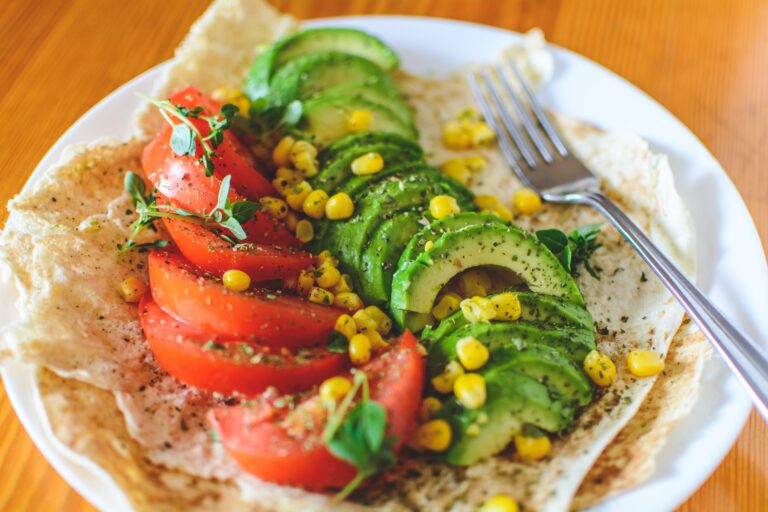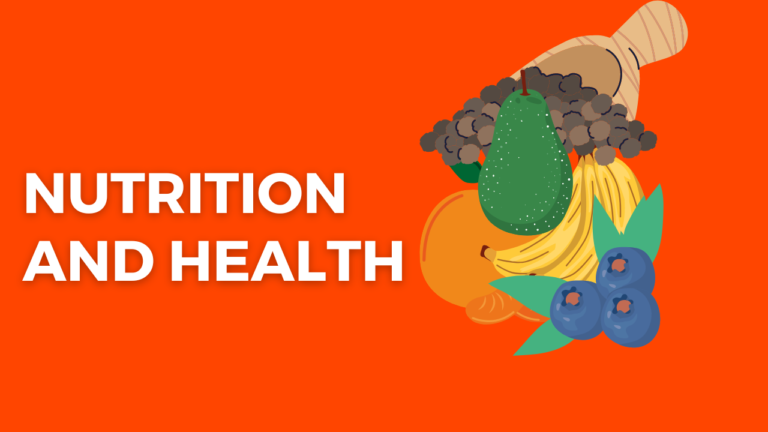The Do’s and Don’ts of Healthy Eating After Your Workout

Introduction
Absolutely! Proper nutrition after a workout is crucial for replenishing energy stores, repairing muscle tissues, and enhancing recovery. Here are the do’s and don’ts of healthy eating after your workout:
Do’s:
- Rehydrate: Drink water to replace fluids lost through sweat during exercise.
- Consume Protein: Include a protein source to aid muscle repair and growth. Lean meats, eggs, dairy, legumes, tofu, or protein shakes are good options.
- Eat Carbohydrates: Replenish glycogen stores by consuming carbohydrates. Opt for whole grains, fruits, or vegetables to provide energy.
- Healthy Fats: Incorporate healthy fats like avocados, nuts, seeds, or olive oil to support nutrient absorption and provide sustained energy.
- Timing is Key: Consume a meal or snack containing protein and carbs within 30-60 minutes post-exercise to aid recovery.
- Balanced Meal: Aim for a well-balanced meal with a mix of protein, carbohydrates, and healthy fats for overall recovery and energy replenishment.
Don’ts:
- Avoid Overeating: While refueling is important, avoid consuming excessive calories that may counteract your workout efforts.
- Don’t Skip Meals: Skipping meals post-workout can hinder recovery and muscle repair.
- Limit Sugary Treats: While some carbohydrates are good for recovery, excessive sugary foods can cause energy spikes and crashes.
- Avoid Unhealthy Fats: Steer clear of foods high in unhealthy saturated or trans fats, as they can slow down digestion and aren’t beneficial for recovery.
- Don’t Forget Water: Avoid solely relying on sports drinks or high-calorie beverages, as they might contain excess sugar or calories.
- Delaying Meals Too Long: Waiting too long to eat after a workout can delay recovery. Aim to refuel within an hour for optimal benefits.
Remember, the ideal post-workout meal or snack will depend on individual factors like workout intensity, duration, and personal dietary preferences. Consulting with a nutritionist or dietitian can provide personalized guidance based on your specific needs and fitness goals.
Why is Post-Workout Nutrition Important?
Post-workout nutrition plays a crucial role in supporting recovery, optimizing performance, and achieving fitness goals. Several reasons underscore the importance of post-exercise nutrition:
Muscle Recovery and Repair:
- Muscle Protein Synthesis: After exercise, the body’s muscles undergo stress and damage. Consuming protein-rich foods or supplements post-workout helps initiate muscle protein synthesis, promoting the repair and growth of muscle tissues.
Glycogen Replenishment:
- Energy Restoration: During exercise, glycogen, the body’s stored form of carbohydrates, gets depleted. Consuming carbohydrates after a workout helps replenish glycogen stores, providing the body with the necessary energy for subsequent workouts and daily activities.
Reducing Muscle Soreness:
- Decreased Muscle Fatigue and Soreness: Proper nutrition post-workout can help reduce muscle soreness and fatigue by supplying essential nutrients that aid in the recovery process.
Improved Performance and Adaptation:
- Enhanced Performance: Adequate post-workout nutrition supports the body in adapting to the stresses of exercise, potentially improving performance in subsequent workouts.
Preventing Muscle Breakdown:
- Preventing Muscle Breakdown: In some cases, particularly during intense or prolonged workouts, the body can enter a catabolic state where it breaks down muscle for energy. Consuming protein after exercise helps counteract this process, preserving muscle mass.
Hydration:
- Rehydration: Adequate fluid intake post-exercise is crucial to replenish fluids lost through sweat, preventing dehydration and maintaining proper bodily functions.
Overall Recovery and Well-being:
- Faster Recovery: Proper nutrition after a workout aids in overall recovery, reducing the risk of injury and preparing the body for subsequent exercise sessions.
Timing Matters:
- Anabolic Window: While the concept of an immediate “anabolic window” (a specific timeframe post-workout for optimal nutrition) has been debated, consuming nutrients within 30-60 minutes post-exercise may be beneficial for maximizing recovery and muscle repair.
In summary, post-workout nutrition plays a significant role in repairing muscles, replenishing energy stores, reducing muscle soreness, and supporting overall recovery. Tailoring your post-exercise nutrition to include a balanced mix of protein, carbohydrates, and fluids can significantly impact your fitness progress and well-being.
What to Eat After a Workout: The Optimal Choices
Choosing the right foods after a workout can aid in recovery, muscle repair, and replenishment of energy stores. Optimal post-workout foods should include a combination of protein, carbohydrates, healthy fats, and fluids. Here’s a breakdown of some great choices:
Protein Sources:
- Chicken, Turkey, or Lean Meats: Rich in protein, these options aid in muscle repair and growth.
- Fish: Salmon, tuna, or other fatty fish provide protein and omega-3 fatty acids, which support recovery.
- Eggs: A complete protein source with essential amino acids necessary for muscle repair.
- Greek Yogurt: High in protein and also provides calcium for muscle and bone health.
- Plant-Based Proteins: Tofu, tempeh, lentils, beans, or chickpeas are excellent alternatives for vegetarians and vegans.
Carbohydrate Sources:
- Whole Grains: Brown rice, quinoa, whole wheat bread, or pasta provide carbohydrates for glycogen replenishment.
- Fruits: Bananas, berries, oranges, or pineapple offer natural sugars and antioxidants for energy and recovery.
- Sweet Potatoes: High in carbohydrates and rich in vitamins, providing sustained energy.
- Oatmeal: A complex carbohydrate that also offers fiber for a steady release of energy.
Healthy Fats:
- Avocado: Rich in healthy fats and potassium, which helps in rehydration.
- Nuts and Seeds: Almonds, walnuts, chia seeds, or flaxseeds provide healthy fats and some protein.
- Olive Oil: Use as a dressing or for cooking to add healthy fats to your post-workout meal.
Hydration:
- Water: Rehydrate with plain water to replace fluids lost through sweat during exercise.
- Coconut Water: Contains electrolytes like potassium and sodium, aiding in hydration.
Timing:
Consuming a combination of protein and carbohydrates within 30-60 minutes post-workout is often recommended to maximize the benefits of nutrient uptake during the recovery window.
Sample Post-Workout Meals:
- Grilled chicken with quinoa and roasted vegetables
- Greek yogurt with berries and a sprinkle of nuts/seeds
- Tuna salad sandwich on whole wheat bread with mixed greens
- Smoothie with banana, spinach, protein powder, and almond milk
- Veggie stir-fry with tofu or lean beef over brown rice
Tailor your post-workout meal to suit your dietary preferences, individual nutritional needs, and fitness goals. Remember, consistency in your overall diet and exercise routine is key for long-term fitness and health benefits. Consulting a nutritionist or dietitian can provide personalized advice based on your specific requirements.
Timing Matters: When to Eat After Exercise
The timing of your post-exercise meal or snack can play a role in optimizing recovery and replenishing energy stores. While the concept of an immediate “anabolic window” has been debated, consuming nutrients within a certain timeframe after exercise can be beneficial for many individuals. Here’s a breakdown of the timing:
1. Within 30-60 Minutes:
Consuming a balanced meal or snack within 30-60 minutes post-exercise is often recommended to:
- Maximize Nutrient Uptake: During this period, your body’s ability to absorb nutrients, especially carbohydrates and protein, may be heightened, aiding in muscle repair and glycogen replenishment.
- Muscle Recovery: Providing the necessary nutrients promptly can kickstart the muscle repair process, enhancing recovery.
2. Individual Factors:
- Intensity and Duration of Exercise: More intense or prolonged workouts might necessitate quicker refueling to aid in recovery.
- Fitness Goals: If you have specific fitness or muscle-building goals, paying attention to your post-workout nutrition timing might be more crucial.
3. Overall Diet and Meal Schedule:
- Consistency: While immediate post-workout nutrition can be beneficial, overall consistency in your diet and nutrient intake throughout the day is equally important.
- Regular Meals: If you’re unable to eat immediately after exercise, ensuring that you have a well-balanced meal within a couple of hours post-workout is still beneficial.
4. Hydration:
- Immediate Rehydration: While not directly related to food intake, it’s crucial to rehydrate by drinking water or electrolyte-containing fluids after exercise to replace lost fluids.
5. Personal Preference and Tolerance:
- Individual Responses: Some individuals might feel discomfort or digestive issues if they eat too soon after exercising. It’s important to listen to your body and adjust your post-workout nutrition accordingly.
6. Consistency Over Perfect Timing:
While consuming nutrients within the suggested timeframe can be advantageous, overall consistency in your diet and exercise routine will have a more significant impact on your fitness goals and overall health.
Remember
While there’s no hard and fast rule for the perfect post-workout eating window, aiming to consume a balanced meal or snack containing protein and carbohydrates within an hour after exercise can be a good guideline for many individuals. However, finding what works best for you, considering individual factors and preferences, is key to optimizing your post-exercise nutrition.
Post-Workout Hydration: The Role of Fluids and Electrolytes
Post-workout hydration is crucial for restoring fluids lost through sweat during exercise and maintaining proper bodily functions. Both fluids and electrolytes play essential roles in the body’s recovery process after a workout.
Importance of Hydration:
- Fluid Balance: Sweating during exercise leads to fluid loss, and rehydrating helps restore proper fluid balance in the body.
- Temperature Regulation: Adequate hydration supports the body’s ability to regulate temperature, preventing overheating during and after exercise.
- Nutrient Transport: Fluids aid in the transportation of nutrients to cells, supporting the recovery and repair of muscles.
Role of Electrolytes:
Electrolytes are minerals that carry an electric charge and include sodium, potassium, calcium, magnesium, chloride, and phosphate. They’re crucial for various bodily functions, especially during and after exercise:
- Maintaining Fluid Balance: Electrolytes help regulate the balance of fluids within cells and throughout the body.
- Muscle Contraction: Proper levels of electrolytes, especially sodium and potassium, are vital for optimal muscle function and contraction.
- Nerve Function: Electrolytes support nerve signaling and communication within the body.
Post-Workout Hydration Strategies:
- Water: Replacing lost fluids by drinking water after a workout is the simplest and most effective way to rehydrate.
- Electrolyte-containing Drinks: Sports drinks or electrolyte-enhanced beverages can be beneficial, especially after intense or prolonged exercise sessions. These drinks help replenish both fluids and electrolytes lost through sweat.
- Coconut Water: Natural coconut water is rich in potassium and can serve as a natural source of electrolytes for rehydration.
- Fruits and Vegetables: Consuming fruits and vegetables high in water content, such as watermelon, oranges, cucumbers, and tomatoes, can contribute to hydration and provide some electrolytes.
- Balanced Diet: Maintaining a balanced diet that includes foods rich in electrolytes, such as bananas (potassium), nuts (magnesium), and leafy greens (calcium), can support overall electrolyte balance.
Hydration Guidelines:
- Pre-Workout: Start your exercise session adequately hydrated by drinking fluids beforehand.
- During Exercise: Drink water or electrolyte-containing beverages during prolonged or intense workouts to prevent dehydration.
- Post-Workout: Rehydrate by drinking water and, if necessary, consider beverages containing electrolytes to restore proper balance.
Monitoring Hydration Status:
Monitoring your hydration status by checking urine color (light yellow to clear indicates proper hydration) and considering factors like thirst and sweat loss can help determine your hydration needs after a workout.
Remember, individual hydration needs vary based on factors like exercise intensity, duration, sweat rate, and environmental conditions. Adequate post-workout hydration is essential for optimal recovery and overall health.
Balancing Macros: The Importance of Protein, Carbs, and Fat in Your Post-Workout Meal
Balancing macros (macronutrients) in your post-workout meal is crucial for supporting recovery, muscle repair, and replenishing energy stores. The three main macronutrients are protein, carbohydrates, and fats, each playing a significant role in the body’s post-exercise recovery process:
1. Protein:
- Muscle Repair and Growth: Protein is essential for repairing and rebuilding muscle tissues that are stressed and damaged during exercise.
- Amino Acids: Proteins contain amino acids, which are the building blocks for muscle repair and recovery. Consuming protein after a workout helps initiate muscle protein synthesis.
2. Carbohydrates:
- Glycogen Replenishment: Carbohydrates are the body’s primary energy source. After exercise, consuming carbs helps replenish glycogen stores that were depleted during physical activity.
- Energy Restoration: Carbohydrates provide immediate energy for the body, aiding in recovery and preparing for the next workout.
3. Fats:
- Nutrient Absorption: Healthy fats play a role in the absorption of fat-soluble vitamins and other nutrients.
- Sustained Energy: Including healthy fats in your post-workout meal can provide sustained energy and aid in satiety.
Importance of Balancing Macros in the Post-Workout Meal:
- Muscle Recovery: Protein is crucial for muscle repair, while carbohydrates replenish glycogen stores, aiding in overall recovery.
- Energy Replenishment: Carbohydrates provide quick energy, and a balance of healthy fats can provide sustained energy throughout the post-workout recovery phase.
Ideal Balance:
- Protein: Aim for around 20-30 grams of protein in your post-workout meal to stimulate muscle protein synthesis effectively.
- Carbohydrates: Consuming a ratio of carbohydrates to protein in a 2:1 or 3:1 ratio can aid in glycogen replenishment and optimize recovery.
- Fats: Including a moderate amount of healthy fats (like avocados, nuts, or olive oil) can complement the meal, supporting nutrient absorption and providing sustained energy.
Sample Post-Workout Meals with Balanced Macros:
- Grilled chicken breast (protein) with quinoa (carbohydrates) and a side of mixed vegetables cooked in olive oil (healthy fats).
- Greek yogurt (protein) with berries (carbohydrates) and a sprinkle of almonds or chia seeds (healthy fats).
Timing:
- Consuming a meal or snack containing a mix of protein, carbohydrates, and fats within 30-60 minutes post-exercise is generally recommended for optimal recovery.
Personalization:
- Individual needs vary based on factors like workout intensity, duration, body composition, and fitness goals. Tailor your post-workout meal based on personal preferences and nutritional needs.
Balancing macros in your post-workout meal is essential for facilitating recovery, supporting muscle repair, and replenishing energy stores to maximize the benefits of your exercise routine. Consulting a nutritionist or dietitian can provide personalized guidance based on your specific fitness goals and dietary requirements.
Customizing Your Post-Workout Meal: Individual Needs and Preferences
Customizing your post-workout meal based on individual needs and preferences is key to optimizing recovery, achieving fitness goals, and ensuring overall satisfaction with your diet. Here’s how you can personalize your post-workout meal:
1. Consider Your Fitness Goals:
- Muscle Building: If your goal is to build muscle, prioritize protein intake to support muscle repair and growth.
- Endurance and Energy: For endurance or energy-intensive activities, focus on replenishing glycogen stores with a mix of carbohydrates and protein.
2. Body Composition and Activity Level:
- Body Composition: Tailor your macronutrient ratios based on your body’s composition, activity level, and metabolism.
- Activity Level: Adjust your post-workout meal size and composition depending on the intensity and duration of your exercise.
3. Macronutrient Ratios:
- Protein: Choose a protein source that aligns with your dietary preferences (e.g., animal-based, plant-based) and provides an adequate amount for muscle repair.
- Carbohydrates: Select carbs that suit your preferences and energy needs. Whole grains, fruits, and vegetables offer quality carbohydrates for energy replenishment.
- Fats: Incorporate healthy fats to enhance nutrient absorption and provide sustained energy. Customize based on your taste and dietary choices.
4. Allergies and Dietary Restrictions:
- Allergies: Avoid foods that trigger allergies. Substitute with suitable alternatives to ensure a balanced post-workout meal.
- Dietary Restrictions: Consider dietary restrictions (e.g., vegetarian, vegan, gluten-free) when selecting food items for your post-exercise meal.
5. Personal Taste Preferences:
- Food Choices: Select foods that you enjoy and that align with your taste preferences. Creating meals that you like increases the likelihood of adherence to your post-workout nutrition plan.
6. Hydration:
- Fluids: Incorporate hydrating fluids based on personal preference. Water, herbal teas, or electrolyte-containing beverages can suit different tastes.
Sample Customized Post-Workout Meals:
- For Muscle Building: Grilled chicken (protein), quinoa (carbohydrates), mixed vegetables with olive oil (healthy fats).
- Endurance Training: Smoothie with protein powder (protein), banana and oats (carbohydrates), almond butter (healthy fats).
Experiment and Adjust:
- Trial and Error: Experiment with various food combinations and portion sizes to find what works best for your body and exercise routine.
- Monitor Performance: Assess how different meals affect your energy levels, recovery, and performance to make adjustments as needed.
Consult a Professional:
- Seeking guidance from a nutritionist or dietitian can provide personalized recommendations tailored to your individual needs, optimizing your post-workout nutrition plan for better results.
Customizing your post-workout meal ensures that you’re fueling your body effectively, aiding recovery, and meeting your specific nutritional requirements while enjoying the foods you eat. Tailoring your meal to your individual needs and preferences is key to sustaining a healthy and enjoyable fitness journey.
A Sample Post-Workout Menu: Ideas for Nutritious Recovery Meals
Absolutely, here’s a sample post-workout menu incorporating various nutritious recovery meal ideas, balancing protein, carbohydrates, and healthy fats:
Breakfast Option:
Scrambled Eggs with Avocado Toast
- Protein: Scrambled eggs (3 eggs or egg whites) seasoned with herbs.
- Carbohydrates: Whole-grain toast (multigrain or whole wheat) topped with mashed avocado.
- Healthy Fats: Avocado provides healthy fats and complements the protein and carbs.
Lunch Option:
Grilled Chicken Quinoa Salad
- Protein: Grilled chicken breast (or tofu/tempeh for vegetarians) seasoned with herbs.
- Carbohydrates: Quinoa (or brown rice) mixed with colorful vegetables like bell peppers, spinach, cherry tomatoes, and cucumber.
- Healthy Fats: Dressing made with olive oil, lemon juice, and a sprinkle of nuts or seeds (like almonds or pumpkin seeds).
Snack Option:
Greek Yogurt Parfait
- Protein: Greek yogurt (unsweetened or lightly sweetened) for protein.
- Carbohydrates: Fresh berries (strawberries, blueberries, raspberries) for natural sugars and antioxidants.
- Healthy Fats: A sprinkle of nuts (like walnuts or almonds) or seeds (such as chia seeds) on top.
Dinner Option:
Salmon with Sweet Potato and Steamed Broccoli
- Protein: Grilled or baked salmon fillet seasoned with herbs or a light marinade.
- Carbohydrates: Oven-baked sweet potato (or mashed sweet potato) as a side.
- Healthy Fats: Salmon itself provides healthy omega-3 fatty acids. Additionally, use a drizzle of olive oil or a small pat of butter on the sweet potato.
Post-Workout Shake Option:
Protein Smoothie
- Protein: Whey, pea, or plant-based protein powder.
- Carbohydrates: Frozen banana for creaminess and natural sweetness.
- Healthy Fats: Add a spoonful of almond butter or a handful of spinach with a splash of almond milk or coconut water.
Hydration throughout the Day:
- Drink water consistently throughout the day to maintain proper hydration levels. For post-workout hydration, consider consuming water or electrolyte-containing drinks.
These sample meals offer a balance of macronutrients essential for post-workout recovery and can be adjusted based on individual dietary preferences, allergies, or restrictions. Remember, portion sizes and ingredient quantities can be tailored to meet specific caloric or dietary needs. Consulting a nutritionist or dietitian can provide further personalized guidance for your post-workout nutrition.
Conclusion
In conclusion, post-workout nutrition is a critical component of any fitness regimen. It plays a pivotal role in aiding muscle recovery, replenishing energy stores, and optimizing overall performance. Here are the key takeaways:
Importance of Post-Workout Nutrition:
- Muscle Recovery: Consuming the right nutrients post-exercise supports muscle repair and growth.
- Glycogen Replenishment: Carbohydrates help restore glycogen stores depleted during workouts, providing energy for recovery.
- Hydration and Electrolytes: Fluids and electrolytes are vital for rehydration and maintaining proper bodily functions.
Components of a Balanced Post-Workout Meal:
- Protein: Essential for muscle repair and growth. Sources include lean meats, fish, eggs, dairy, legumes, and plant-based options like tofu or tempeh.
- Carbohydrates: Replenish glycogen stores and provide immediate energy. Opt for whole grains, fruits, and vegetables.
- Healthy Fats: Aid in nutrient absorption and offer sustained energy. Include sources like avocado, nuts, seeds, and olive oil.
Timing and Personalization:
- Timing Matters: Aim to consume a balanced meal or snack within 30-60 minutes post-exercise to maximize recovery.
- Customization: Tailor your post-workout meals based on fitness goals, dietary preferences, allergies, and individual needs.
Hydration:
- Fluid Intake: Rehydrate with water or electrolyte-containing beverages to replace fluids lost through sweat and maintain proper hydration.
Experiment, Monitor, and Adapt:
- Trial and Error: Experiment with different food combinations and portion sizes to find what works best for your body.
- Monitor Performance: Observe how different meals affect your energy levels, recovery, and overall performance and adjust accordingly.
Consult a Professional:
- Seeking advice from a nutritionist or dietitian can offer personalized guidance for your post-workout nutrition plan, ensuring it aligns with your specific fitness goals and dietary requirements.
By paying attention to your body’s needs and providing it with the right nutrients at the right times, you can optimize recovery, support muscle growth, and enhance your overall fitness journey. Customizing your post-workout meals is a powerful way to achieve your fitness goals while enjoying a satisfying and nourishing diet.


![Benefits of Including [specific food] in Your Diet](https://xooshow.com/wp-content/uploads/2023/12/pexels-adonyi-gabor-1414651-768x511.jpg)



